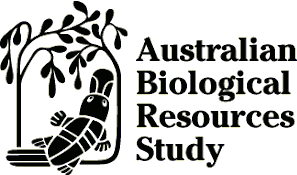Australian Tropical Rainforest Plants - Online edition
Araucaria cunninghamii Mudie var. cunninghamii
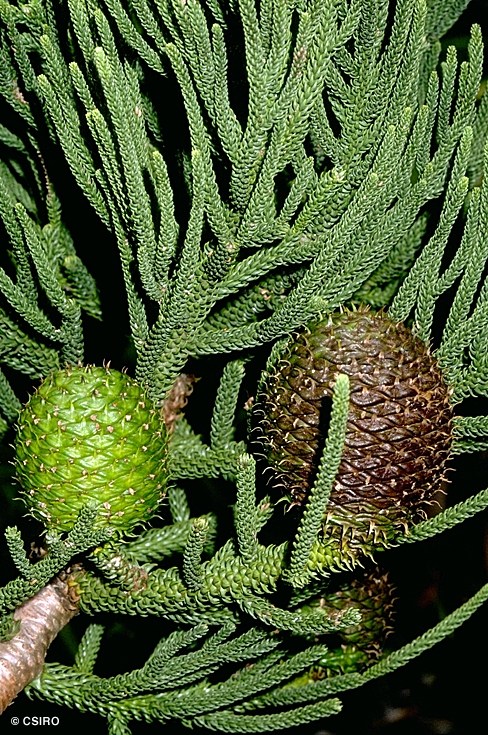
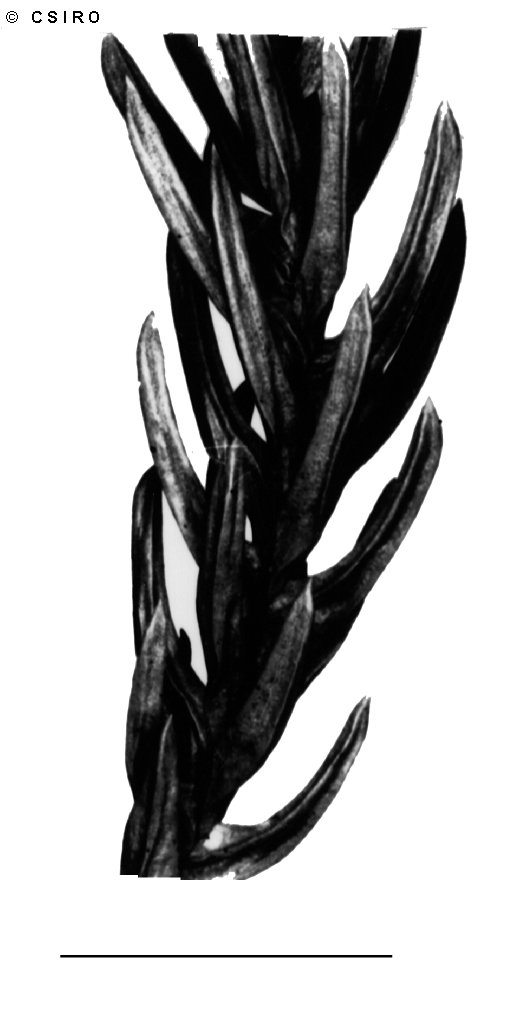
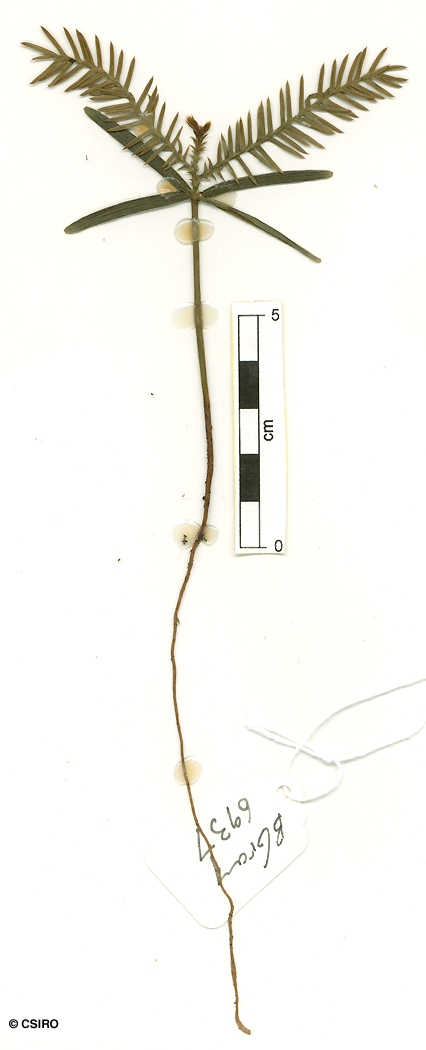
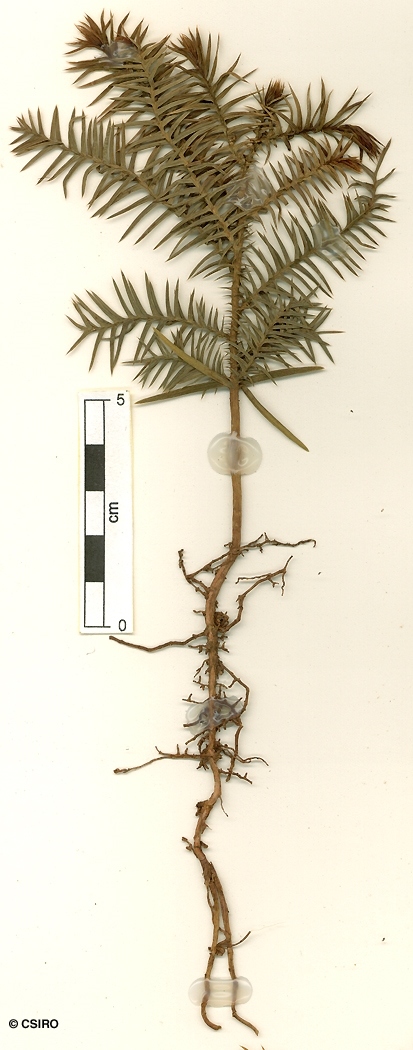
Endlicher, S.L. (1847) Synopsis Coniferarum: 187.
Moreton Bay Pine; Rocket Tree; Richmond River Pine; Queensland Pine; Pine, Richmond River; Pine, Queensland; Pine, Moreton Bay; Pine, Dorrigo; Pine, Hoop; Hoop Pine; Dorrigo Pine; Colonial Pine; Pine, Colonial
Bark shed in horizontal strips.
Leaves narrow and short (less than 8 x 3 mm) ending in sharp points.
Male cones about 3.5-8 cm long.
Cotyledons bilobed, deeply divided to the base, the lobes very narrow, about 20-25 mm long. At the tenth leaf stage: leaves sessile, flat, tapering to a needle-like point at the apex. Seed germination time 9 to 14 days.
Occurs in CYP, NEQ and CEQ. With scattered distribution in CYP, and rare and restricted in NEQ, extending southwards to north-eastern New South Wales and reaching its best development in south-eastern Queensland. Altitudinal range in CYP, NEQ and CEQ from near sea level to about 600 m. In CYP and NEQ this species tends to occur in situations where luxuriant rain forest development is precluded by unfavourable soil or substrate conditions but where forest fires seldom occur. Also occurs in New Guinea.
This species was the mainstay of the timber industry in Southern Queensland from the time of first settlement up to the Second World War. However, although it occurs sporadically in North Queensland, it has never made a significant contribution to the timber industry. The significant stands in the McIlwraith Range area near Coen have never been exploited as they are too far away from market areas and extraction costs are prohibitive.
The timber or this species has had a wide range of uses: boxes and cases, broom handles, butter churns, stoves for cooperage, blackboards, office fittings, plywood, kitchen furniture, internal house fittings, sheeting, venetian blinds, bread boards, washboards, instrument cases, ammunition boxes, piano cases and keys, violin backs and bellies, paper pulp, masts and booms in sailing boats, boat planking and oars. Swain (1928).
Wood specific gravity 0.56. Cause et al. (1989).
Araucaria cunninghamii Mudie, The Picture of Australia: 133 (1829), Type: "..grows abundantly on the banks of the Brisbane..". Araucaria cunninghamii Mudie f. cunninghamii, Bailey, F.M. in Comprehensive Catalogue of Queensland Plants: 513 (1913). Araucaria cunninghamii f. glauca (Antoine) F.M.Bailey, Comprehensive Catalogue of Queensland Plants: 513 (1913). Araucaria glauca Antoine, Coniferen, nach Lambert, Louden und andern frei Bearbeitet: 105, t. 44 (1841). Araucaria cunninghamii var. glauca (Antoine) Endl., Synopsis Coniferarum: 187 (1847). Eutassa cunninghamii (Mudie) Sweet, Sweet's Hortus Britannicus Edn. 3: 623 (1839). Araucaria cunninghamii var. longifolia Endl., Synopsis Coniferarum: 187 (1847), Type: "Antoine Conif. t. 44. f. 2.".




